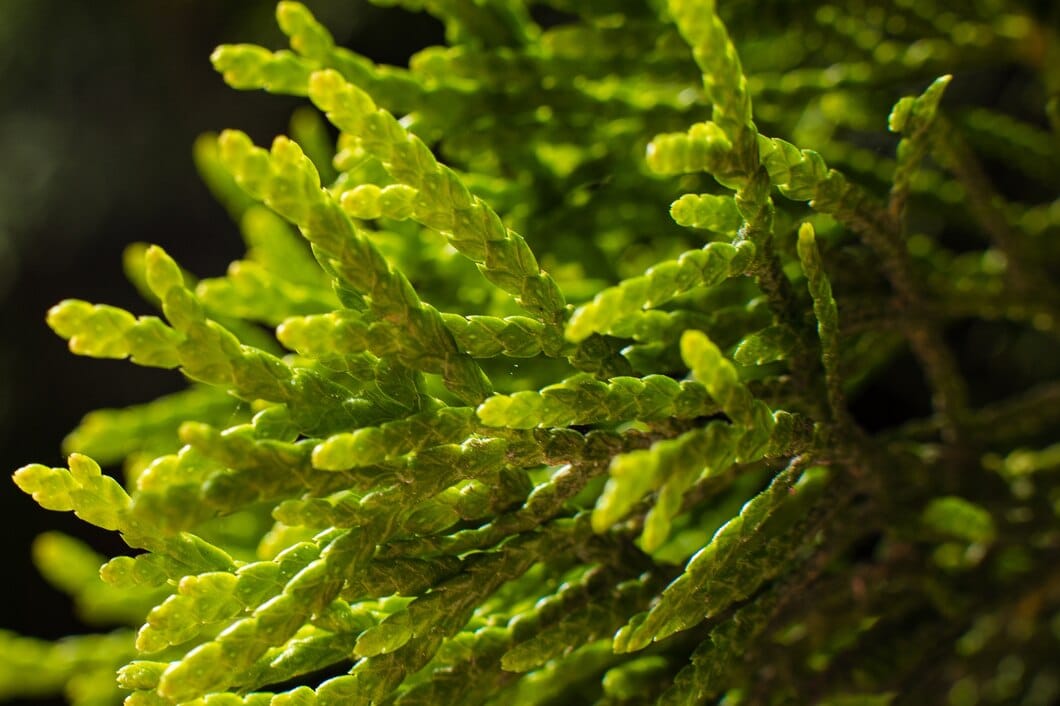What is Ascophyllum nodosum?
Ascophyllum nodosum, better known as kelp or black seaweed, is a brown seaweed that grows in the cold waters of the North Atlantic, particularly in Brittany, Norway and Canada. It is particularly rich in nutrients and is used in human and animal nutrition, as well as in organic farming as a natural fertiliser.
Origin and habitat
Ascophyllum nodosum is found mainly on the rocky coasts of the North Atlantic, where the tides allow it to alternate between immersion and exposure to the open air. This makes it extremely resistant and exceptionally rich in bioactive compounds. Harvested sustainably, this seaweed has been used for centuries in food and traditional medicine.
Composition and benefits
Ascophyllum nodosum is a veritable mine of nutrients and active ingredients with health benefits. Its high iodine and polyphenol content makes it an ingredient of choice in many dietary supplements.
Main assets :
- Iodine Essential for healthy thyroid function.
- Fucoidane Immunomodulatory and anti-inflammatory effect.
- Polyphenols Powerful antioxidants.
- Alginic acid Helps detoxification and intestinal transit.
- Fibre and minerals Provides calcium, magnesium, iron and zinc.
Properties and desired effects :
- Support for thyroid function thanks to its iodine content.
- Antioxidant effect Protects cells against oxidative stress.
- Aids digestion Helps intestinal transit and may play a role in weight management.
- Immune support thanks to fucoidans and polyphenols.
- Anti-inflammatory effect Can help with chronic inflammation.
- Effect on oral health Reduces the formation of dental plaque and prevents cavities.
Use as a food supplement
Ascophyllum nodosum is available in various forms:
- Capsules Easy to dose and consume on a daily basis.
- Powder Add to smoothies, soups or dishes.
- Liquid extract Sometimes used in cosmetics or agriculture.
Recommended dosage :
The daily dose generally varies between 200 mg and 500 mg as required and as recommended by the manufacturers.
Precautions and contraindications :
- People suffering from thyroid disorders (hypothyroidism or hyperthyroidism) : Iodine content may interfere with treatment.
- Pregnant and breast-feeding women : Seek medical advice before use.
- Allergies to seaweed or seafood Risk of allergic reaction.
- Interaction with certain drugs : Such as anticoagulants or thyroid hormone treatments.
Suggested associations
- Thyroid support Selenium, Zinc.
- Detoxifying effect Chlorella, Spirulina.
- Oral health Activated charcoal, Propolis.
- Immune and anti-inflammatory Turmeric, Ginger.
Sources
- Thompson KH, Racz WJ. "Potential Health Benefits of Ascophyllum nodosum." J Appl Phycol 2020.
- Teas J, Pino S, Critchley A, Braverman L. "Variability of Iodine Content in Ascophyllum nodosum Supplements." Thyroid 2004.
- Phaeophyceae and Human Health: Nutritional and Therapeutic Aspects. Mar Drugs 2017.
- Lahaye M. "Marine Algae as Sources of Dietary Fiber. Trends Food Sci Technol 2001.











